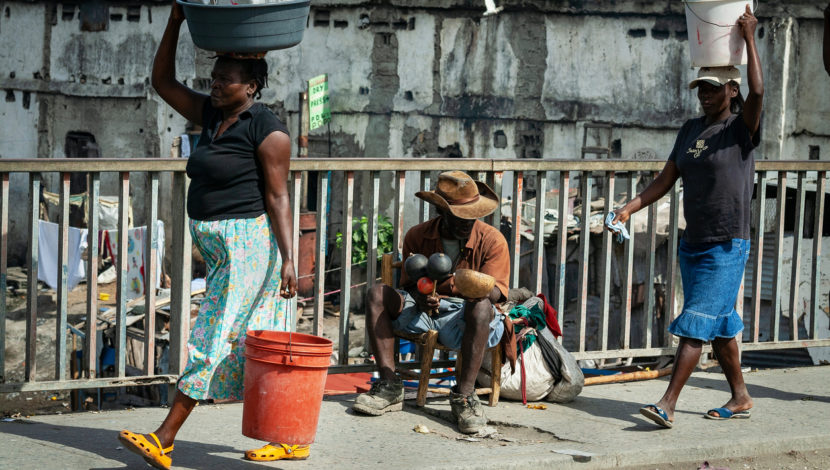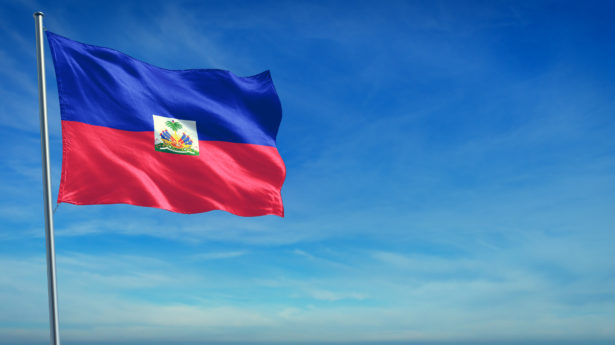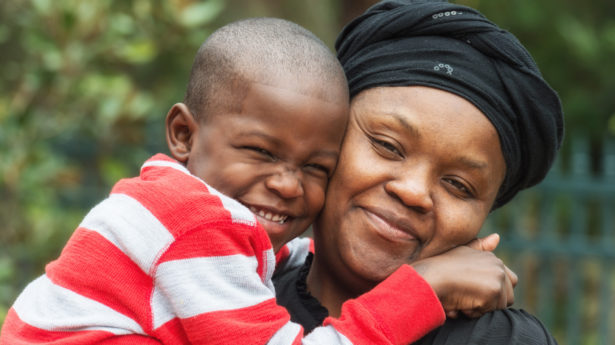The Unitarian Universalist Service Committee advances human rights through grassroots collaborations.
Haiti Disasters Highlight Need for Intersectional Solidarity and Justice

By Katie Ingegneri on August 19, 2021
Haiti, the Caribbean nation that has dealt with centuries of turbulence due to European and American colonialism, U.S. intervention, political strife, and natural disasters, was once again hit this week by a powerful earthquake—echoing 2010’s widespread destruction—and, subsequently, the effects of Tropical Storm Grace. Combined, these events have already had a devastating toll, and came on the heels of the assassination of Haiti’s President, Jovenel Moïse, in early July. Recovery will be complex and challenging, particularly in light of the ongoing, worldwide COVID-19 pandemic.
Disasters like the ones happening in Haiti highlight the need for an intersectional and international approach to support the human rights of all people, particularly for communities who historically—and presently—face injustice. Through UUSC’s work with communities who confront the major human rights issues of our time, from systematic oppression to climate change, we know that when disasters strike, it is often these communities who continue to bear the brunt of unjust policies and systems.
UUSC works within a framework to support the calls of frontline communities who advocate for disaster justice: the acknowledgement that many disasters are human-made and the result of systems; greater support for underserved communities, such as the LGBTQ+ community and people living with disabilities; and ensuring these groups receive the resources they need to rebuild after disasters, while building toward more equitable and sustainable systems.
The situation in Haiti also points to the necessity of supporting migrant justice, particularly for human rights advocates based in the United States who are able to put pressure on our elected representatives in Washington, D.C. This means supporting Haitians who are unable to or do not wish to stay in Haiti by extending Temporary Protected Status (TPS) protections to come to the United States; continuing resistance to the Trump-era Title 42 “public health” policy that has been used as a political tool to block immigrants and asylum-seekers; and advocating for the rights of refugees. The Biden administration continues to deport Haitians back to unsafe conditions, and we echo our partners and other immigrant rights advocates who call for an end to this injustice.
While Haiti’s recovery will be complex and challenging, by supporting grassroots groups on the frontlines who are the most knowledgeable about what their communities need and experience, we can all lend solidarity and support to the autonomy and human rights of the Haitian people.
Help UUSC get resources to grassroots organizations in Haiti by making a gift to our Emergency Response Fund today. UUSC’s work in Haiti will focus on long-term relief and recovery, conducted with locally led grassroots organizations, many of which have partnered with us for more than a decade.
We also invite you to refer to this document, from the Movement for Black Lives, outlining additional ways to support both the immediate and long-term needs of the Haitian people.
***
About UUSC: Guided by the belief that all people have inherent worth and dignity, UUSC advances human rights globally by partnering with affected communities who are confronting injustice, mobilizing to challenge oppressive systems, and inspiring and sustaining spiritually grounded activism for justice. We invite you to join us in this journey toward realizing a better future!
Image Credit: iStock – Serhii Mykhalchuk

